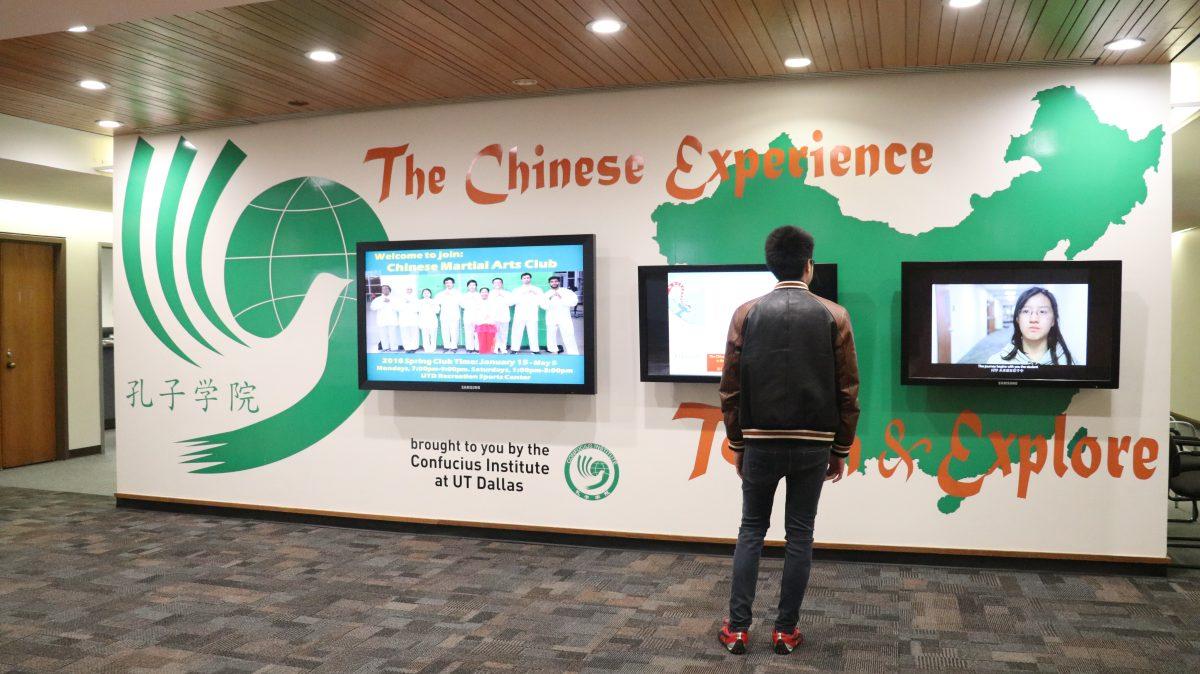After an FBI threat assessment, Texas congressmen have accused a Chinese language organization, which has a location on campus, of propaganda and stealing intellectual property.
Earlier this month, congressmen Michael McCaul and Henry Cuellar issued a joint statement calling for multiple Texas universities, including UTD, to stop hosting their Confucius Institutes, which provide classes and lectures on Chinese language and culture. The Institutes are funded by the Chinese Ministry of Education through a cultural organization called Hanban. In their three-page open letter, the congressmen lay out the argument that CIs are platforms for Chinese government propaganda, and repress individual’s freedom of expression and steal academic research.

In response to McCaul and Cuellar’s letter, the Texas A&M university system terminated their relationship with the CI. This will affect Texas A&M College Station and Prairie View A&M, which have housed CIs since 2008 and 2013, respectively.
The congressmen’s open letter was prompted by a February Senate Intelligence Committee hearing where FBI Director Christopher Wray called the Institutes a tool of the Chinese government and a possible threat to national security.
Arts and Humanities Dean Dennis Kratz, the executive director of UTD’s CI, said that suspicions of the Confucius Institute’s intentions are unfounded.
“We have never had any questions about our relationship with CI influencing or guiding what we do,” Kratz said. “We invite who we want to speak, we approach the topics we’re interested in … there’s never been any kind of influence from China on what we do. Nothing but support for us.”
Kratz said in 2010, the FBI contacted him about his connections to the Chinese and asked about the Confucius Institute.
“I was asked by the FBI agent about eight years ago, do I think the CI is using me to meet powerful people? … But I said no … When I go to China, to the annual conference, what you meet are educators genuinely interested in promoting cultural interaction and international understanding,” Kratz said.
The Mercury filed a Freedom of Information Act in February to request documents related to the FBI’s involvement but has not received any information by publication date.
Director of UTD’s CI, Ming Gu said he doesn’t know why the Confucius Institute has been accused of being use for political purposes.
“Personally, I do not understand how a language or culture program can be related to politics,” Gu said. “From the very beginning, I tried to avoid any political involvement in the running of the Confucius Institute. Again and again, I’ve said to my staff members or to the outside world, I’ve said we are an educational institution devotes to teaching Chinese language and culture and promoting scholarship. That’s our main purpose.”
The University of West Florida announced in February they will not be renewing their contract with the CI after Senator Marco Rubio wrote letters to Florida universities with Confucius Institutes, urging them to terminate their contracts because of dangers to academic freedoms and possible dissemination of propaganda.
Kratz said in the fall of last year, a congressman solicited information from him about CI activities. He declined to identify which congressman asked.
“We received a letter from a congressman this fall. Sent to every CI. And the letter essentially said, do you have any reason, anything we can use, to claim that the CI subverts intellectual freedom and academic integrity? And the answer is no,” Kratz said.
Pennsylvania State University and the University of Chicago closed their Institutes in previous years. The University of Chicago location was closed after a petition by 100 faculty and comments from the chief executive and director of CI.
In 2013 and 2014 respectively, the Canadian Association of University Teachers and the American Association of University Professors recommended universities either terminate or renegotiate their CI because of lack of university control over curriculum and hiring and possible censorship.
Unlike the Confucius Institutes cited by Rubio and the AAUP, UTD is not assigned professors by Hanban, and curriculum is chosen by the university, not the Confucius Institute. In line with AAUP’s recommendations, Chinese professors at UTD are chosen and paid by the university.
There is limited evidence for censorship directed by the Confucius Institute, according to a 2017 report by the National Association of Scholars. The NAS agrees that contracts should be either terminated or renegotiated, but not due to directed censorship. Instead, their recommendations are aimed at stopping self-censorship, legal issues and conflicts of interest.
Gu said the success of the university’s Chinese language program is due in large part to the Institute. In 2008, when the Institute arrived at UTD, the university typically had one or two Chinese language classes per semester. In the spring 2018 semester, eight Chinese language classes were offered.
Kratz and Gu noted two scholarly books have come from the Institute, one on translating classical Chinese literature for western readers, and one set to come out this year about the role of Chinese philosophy in the 21st century. The Edith O’Donnell Institute of Art History is also partnering with Nanjing University to bring an Institute of American Art to that campus in the near future. Kratz said the Confucius Institute had acted as an intermediary between the universities.
Kratz said he’s open to a discussion on campus about the university’s continued relationship with the Confucius Institute.
“Mostly what you’ll find is, at the universities where there are controversies, a group of faculty … who for whatever reasons don’t want it, and they argue against it. … If people wanted to meet with me and say, ‘I don’t think we should have one,’ I would be glad to meet with them. It would be a great open dialogue,” Kratz said.

















